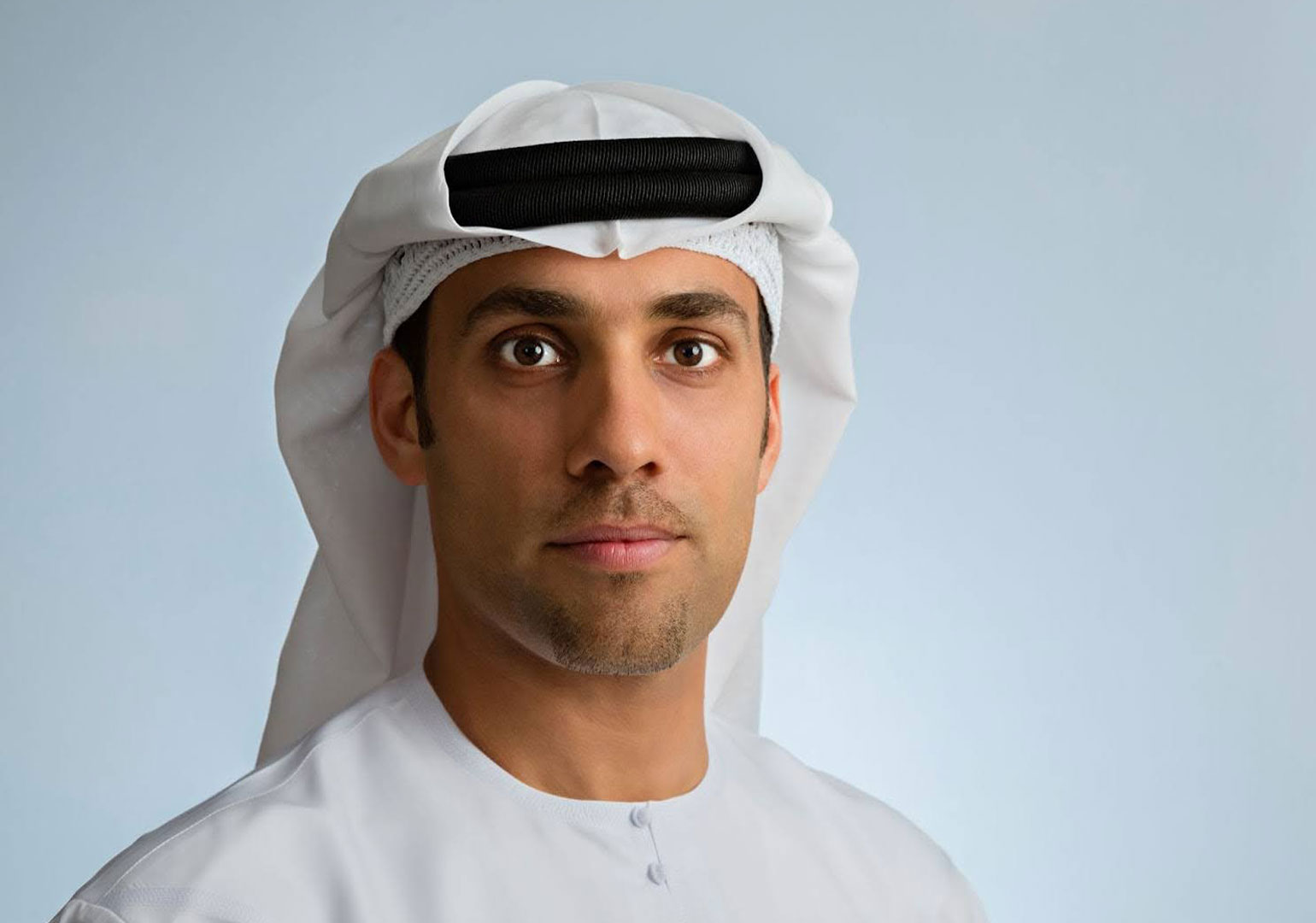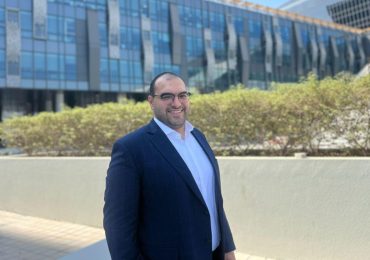Photo courtesy of H.E. Salem Humaid AlMarri
The intersection of artificial intelligence (AI) and space technology opens a new era of scientific exploration, promising to widen people’s understanding of the universe and everything within it. With vast opportunities ahead, strategic investments significantly turn AI possibilities into the next rocket science innovation.
H.E. Salem Humaid AlMarri, director general of the Mohammed Bin Rashid Space Centre (MBRSC), brings over 20 years of experience in the UAE National Space Program to discuss AI and aerospace science. He shares insights into how AI enhances efficiency and drives advanced space technology development. He will also dive into the role of strategic investments to fuel technological advancements and make certain that AI’s integration into aerospace science is both effective and sustainable.
AI and Space Exploration Efficiency
Just like in any other industry, AI is revolutionizing space exploration on a global scale through efficiency and cost-effectiveness. According to the National Aeronautics and Space Administration (NASA), AI-powered systems have facilitated autonomous navigation, enabling spacecraft to make complex maneuvers without human intervention.
For instance, the Mars Curiosity Rover utilized AI algorithms to analyze terrain and choose its routes, increasing scientific productivity. AI also plays a crucial role in data processing, helping researchers sift through massive amounts of information from telescopes and satellites to discover new celestial objects and phenomena.
H.E. Salem Humaid AlMarri mentions how the United Arab Emirates (UAE) contributes to this innovation by focusing on the seamless integration of AI and space technology. As industries adapt to technological advancements, the UAE’s initiatives and investments will shape the future of these transformative fields.
Recent developments, such as the Abu Dhabi Sovereign Fund’s investments in rocket science and AI, highlight the growing relationship between financial resources and technological advancements in space exploration. For AlMarri, this infusion of capital fuels the development of AI-driven solutions, such as satellite operations, data analysis, and interplanetary missions.
Changing the Standards of Space Technology
AI in space technology enhances efficiency and paves the way for more high-tech space technologies, like the NASA prototype that reduces data latency and improves satellites’ dynamic targeting capabilities.
According to AlMarri, AI algorithms will help future space missions process raw data more efficiently. The algorithms will also allow instruments to automatically identify, process, and downlink prioritized information. As a result, it reduces the time it would take to get information about events like a volcanic eruption from space-based instruments to scientists on the ground.
AlMarri also adds that these AI algorithms could help space-based remote sensors make independent decisions about which Earth phenomena, such as wildfires, are most important to observe.
In addition, the European Space Agency (ESA) is moving from exploratory research in AI to real space applications for missions. For example, rovers can autonomously navigate around obstacles, and data downloads from Mars rovers are being scheduled using AI.
Dubai’s commitment to technological excellence is evident through its initiatives, such as the Dubai Future Foundation’s Dubai Centre for AI and the Mohammed Bin Rashid Space Centre (MBRSC). These institutions are pioneers of innovation, building collaboration, research, and developing AI-driven solutions for space missions.
MBRSC, in particular, has made significant AI initiatives, including developing an AI tool for palm tree detection and counting. AlMarri explains that the tool, designed based on AI concepts, efficiently identifies and counts palm trees in aerial imagery. The high demand for this service from MBRSC stakeholders led to its development. It provides a timesaving, cost-effective alternative to traditional methods.
AlMarri mentions, “With an accuracy of approximately 94%, the tool has successfully counted over 4 million palm trees in Al Ain alone. While the task traditionally takes around four months, the AI tool accomplishes it in just three weeks, depending on the region’s size.”
MBRSC is also the brain behind the AI-based tool for flood analysis. This advanced tool identifies and maps flooded areas using satellite imagery, providing crucial information for disaster management. AlMarri explains that the AI tool detects and delineates flooded regions by analyzing satellite images, offering insights to both local and international disaster management organizations.
With an accuracy of around 80%, this tool is essential for efficient resource allocation, emergency response, and recovery planning, ultimately helping to minimize the impact of flooding on affected communities.
Unlocking the Full Potential of Space Technology
While the benefits of AI in space technology are evident, AlMarri states that there are still challenges in space exploration that need to be overcome. These challenges include preparing AI-ready data, addressing hardware and energy constraints, verifying resource carefulness of machine learning models, availability of ground truth data, building trust in AI-based solutions, limited astronaut data for algorithm training, and ethical and legal considerations in deploying automated diagnostic systems in the space environment.
How can space engineering leaders respond to these challenges? AlMarri emphasizes the role of strategic investments. These investments open opportunities for collaboration between tech leaders, stakeholders, and even policymakers to warrant the most effective yet responsible and ethical use of AI in space endeavors.
For instance, NASA’s Jet Propulsion Laboratory (JPL) employs AI algorithms for autonomous navigation and decision-making in robotic spacecraft, enhancing their ability to explore distant planets and celestial bodies. According to a study published in the journal Science Robotics, AI-enabled systems have enabled spacecraft to autonomously detect hazards and adjust their trajectories, reducing the risk of collisions and mission failures.
At the same time, ESA utilizes AI for data analysis and interpretation, accelerating the discovery of new celestial phenomena and enhancing people’s understanding of the universe.
Space agencies integrate ethical principles, such as transparency and accountability, into AI development. This procedure helps verify that these technologies are used responsibly and uphold the highest standards of safety and integrity.
For AlMarri, this outlook maximizes the scientific return on investment. It builds international collaboration and cooperation in space exploration efforts, as emphasized in reports by the International Astronautical Federation (IAF) and the United Nations Office for Outer Space Affairs (UNOOSA).
Ultimately, the responsible use of AI in space demonstrates how state-of-the-art technologies can be harnessed for the betterment of humanity while respecting ethical considerations and safeguarding the integrity of scientific exploration.
Expectations for the Future
The strategic investments in AI and aerospace science lead to possibilities for the future, including deep space exploration, sustainable resource utilization, and space-based manufacturing. AlMarri emphasizes how initiatives like the Artemis program and private-sector ventures drive innovation and propel humanity toward a new era of cosmic exploration and discovery.
AlMarri believes people can expect more advancements from the UAE in AI-enabled space exploration, satellite technology, and Earth observation. Initiatives such as the Mars ba Programme, which aims to establish human colonies on Mars, are just one project that showcases the ambitious vision driving the UAE’s space exploration endeavors.
The partnerships of AI, space technology, and strategic investments mark a start in people’s deeper understanding and utilization of space resources. Through these financial resources, technological aptitude, and collaborative partnerships, AlMarri is optimistic that the industry can unlock the full potential of AI-enabled space exploration, shaping a brighter and more sustainable future for humanity’s cosmic journey.

















